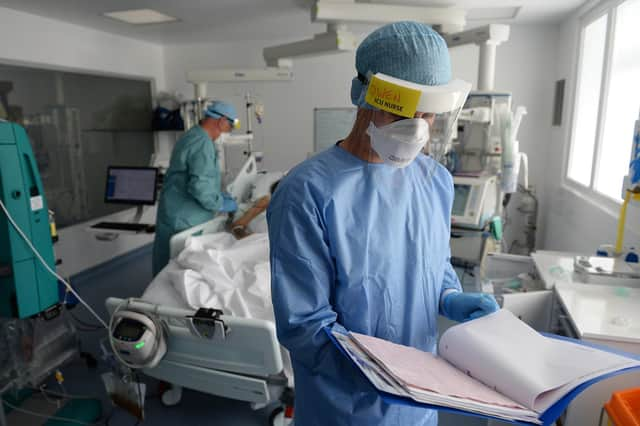People living in deprived Scottish neighbourhoods more likely to die of Covid-19, study finds


The first nationwide study of its kind found patients from the most economically disadvantaged areas had a higher chance of critical care admission, and that intensive care units there were more likely to be over capacity.
Experts say the study, published in The Lancet Regional Health – Europe, highlights the need for extra support to be given to critical care units in poorer areas, and for more to be done to tackle health inequalities.
Advertisement
Hide AdAdvertisement
Hide AdThe link between deprivation and virus spread could be associated with factors including poor housing, more use of public transport, and the pressure to keep working despite risks, researchers said.
The study examined how living in an area of socioeconomic poverty – measured by the Scottish Index of Multiple Deprivation – was linked to severe Covid-19 using anonymous health records.
They also accessed hospital data to assess the impact of the pandemic on critical care units at all of Scotland’s hospitals.
They found that 735 patients with Covid-19 were admitted to critical care units across Scotland between March and June 2020. Of those, around one quarter of admissions were from the most deprived quintile compared with 13 per cent from the least deprived quintile.
Death rates after 30 days were significantly higher in patients from the most deprived places in Scotland compared with the least deprived, after accounting for other factors such as age and sex.
Hospitals in the most deprived health board areas were also more likely to have higher peak in demand for intensive care beds, and to be operating over their normal capacity for longer.
The study was carried out in collaboration with the Scottish Intensive Care Society Audit Group.
Lead researcher Dr Nazir Lone, Senior Clinical Lecturer in Critical Care at the University of Edinburgh and Honorary Consultant in Critical Care at NHS Lothian, said, “A number of factors could be driving this link between poverty and severe disease, including poor housing, increased use of public transport and financial pressures to continue working.
Advertisement
Hide AdAdvertisement
Hide Ad"The most deprived communities, and the hospitals that serve them, will need extra support as the pandemic continues.”
Dr Joanne McPeake, co-author of the study from the University of Glasgow, said: “While we move through this pandemic, it is increasingly important to understand how this virus affects different groups in order for informed decisions to be taken on mitigating risks.
"This data will help inform how we support different communities in both the short and long-term, in order to adequately ensure that socioeconomic inequalities are not exacerbated further.”
A report from National Records of Scotland released in October also found that those in deprived areas were more likely to die of Covid-19.
Those in the most deprived areas are over twice as likely to die as those in the least deprived areas.
Mortality rates were also found to be over four times higher in large urban areas than in remote rural areas.